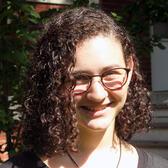Perspectives on Tragedy
My ears ring. My stomach churns. Have I put down my pencil? At this point, I don't know. More than anything, I'm confused. How could someone possibly think that? How is it that I can't think of any logical arguments against their point of view?
"If someone wants to commit suicide, we should let them, because it's what they want."
It was a simple statement, and at first a completely revolting one to me. But the more I tried to explain why they couldn't be correct, the less I found that I could. Who was I to say what was right, and what if some people actually do want to kill themselves? Who was I to say that my classmate was wrong, especially when they’re someone who’s seen so much more of the harder side of the world?
I've grown up in a culturally Jewish household. According to Jewish tradition, protecting human life is one of the most important things a person can do. At no point in my life, until this encounter with a classmate, did I ever consider the possibility that suicide prevention wasn’t the only morally right thing to do.
Not only that, I'm a woman, and while I don't currently plan on giving birth, I have the ability to grow a living person inside me. I mean, how cool is that? How amazing and terrifying and beautiful? There's a special connection between creator and creation – just look at the story of Jonah, in which G-d reveals that it is for this reason that G-d doesn't want to destroy the city of Nineveh. It seems to me that anyone with any maternal instinct would agree that life is too precious to let it go prematurely. So shouldn’t I fight for suicide prevention, when suicide is one of the leading causes of death among young people in the United States?
But this didn’t come from the "idiot boys in my English class," whose opinions I have learned to ignore. This was someone in my art class whom I respect. This was a young woman, like me. Could it be that I was wrong?
Then I remembered why I fight so vehemently for suicide prevention. I remembered the tired look on my seventh-grade friend's face as she passed me a post-it note telling me she was going to commit suicide. I remembered the countless suicide jokes my best friend made last year, each with less humor than the last. I remembered holding my neighbor's infant daughter for the first time and the sense that I held the most precious thing in the world. I remembered standing for the Mourner's Kaddish with families of the recently deceased, and the heartbreak the community felt, no matter the cause of their death.
So how was it that an intelligent young woman, similar to myself in many ways, could believe this? If my opinion on the matter came out of how I was raised, where might my classmate’s opinion come from?
In all honesty, I don't know very much about this classmate's background, only what I can infer from the stories I've heard her tell. Her life hasn't been easy, that much I know. She’s seen people wreck and even lose their lives in a way that has brought her to an extremely casual understanding of mortality. When I've heard her talk about death, it's clear she doesn’t see it as the end of life, but just as another part of it.
I've also heard her mention her connection with Buddhism on a few occasions. I don't know how versed she is in formal Buddhist ethics, which condemn suicide as a form of ultimate violence. I do know that she believes in reincarnation–potentially another explanation for her attitude towards death.
It seems worth noting that both of our backgrounds contain some sort of religious or spiritual influence. Although my religious experience has been more organized and formal, the aspects of my Jewish upbringing that have affected me the most are less religious and more cultural than that of my classmate. Meanwhile, her religious influence is based on a philosophy that resonated with her and she chose to follow.
So maybe my classmate's opinion still makes me sick, and maybe it’s right for me to stand up for my own beliefs on the matter. But maybe I can also try to understand where she's coming from–I don't want to let a single difference of opinion, no matter how strong an opinion, create a barrier between us. After all, the world we've seen and continue to see is the same world, we're just viewing it from different places: me, with the support of the Jewish community and the amazing women who are my role models; her, relatively alone as a young adult, everything larger than life and in her face all the time. Her instinct is to let people find the peace they desire amidst the chaos in front of them. Mine is to try to bring everyone who is hurting into the safety of community. While I can’t make peace with her opinion on this matter, I can understand that at its core, what we believe in is the same – pursuit of a happy life.
This piece was written as part of JWA’s Rising Voices Fellowship.








Wow, Tamar. This is so beautiful and moving. Thank you for this.